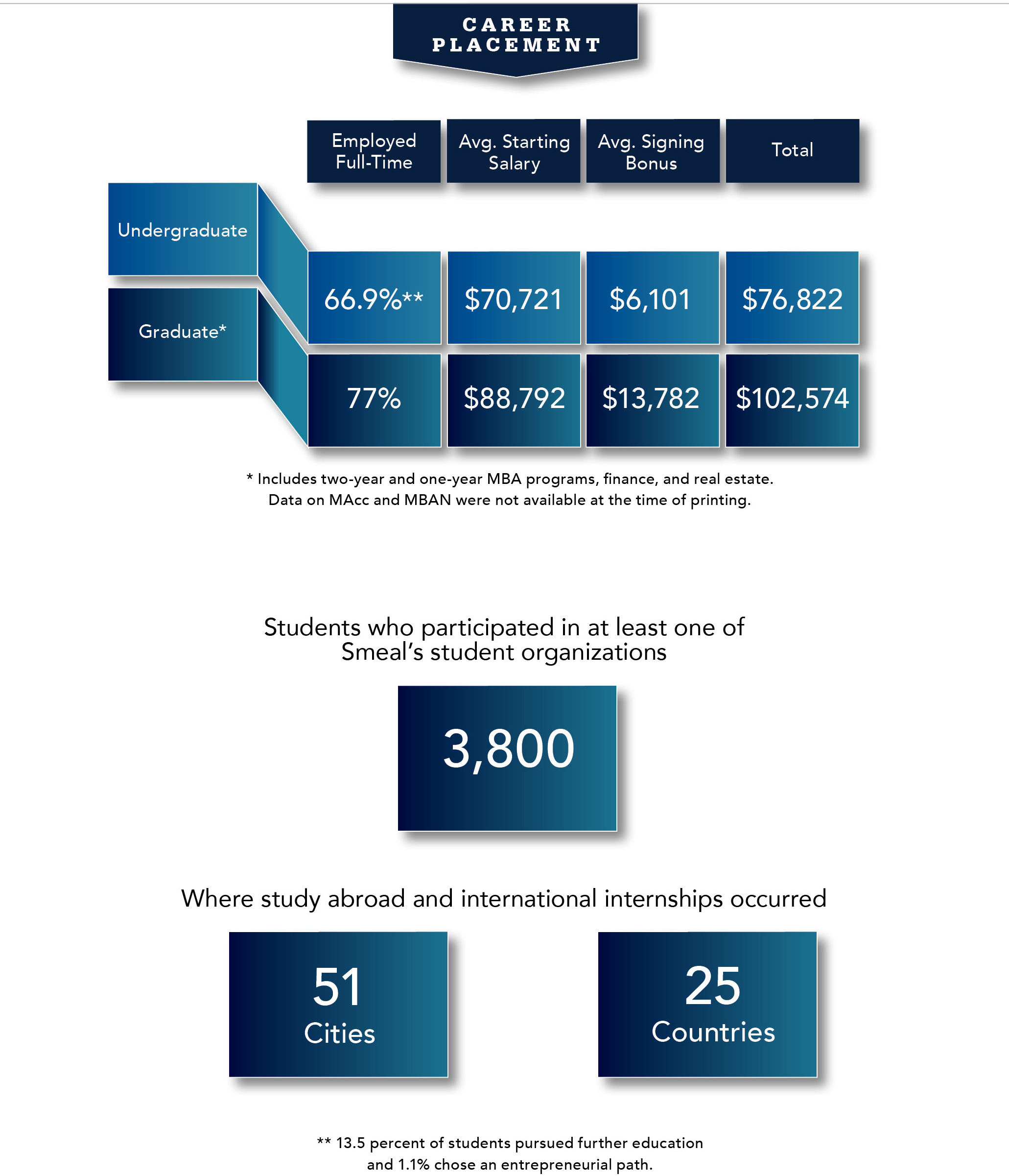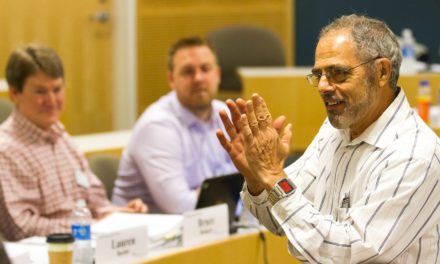Smeal Ph.D. graduate’s inspiration to restore trust in his field translated to career success.
As a marketer, Ben Beck noticed consumers’ growing skepticism of his profession. People have been increasingly worried about scam emails and wary of fake reviews on online platforms.
When he arrived at the Penn State Smeal College of Business in 2018 as a Ph.D. candidate in marketing, he dove into research with the aim of helping businesses restore consumer trust and create goodwill in their communities. Beck collaborated with Stefan Wuyts, professor of marketing, on a research project on the best ways to mitigate fake online reviews on platforms such as Yelp and Trip- advisor. They tested how platforms could adopt practices, such as building community between reviewers and review readers, to build consumer trust in those platforms.
Their research paper was accepted to the prestigious Journal of Marketing Research. That’s one reason why Beck, who graduated from Penn State Smeal in spring 2023, received several job offers for tenure-track faculty positions at leading research institutions.
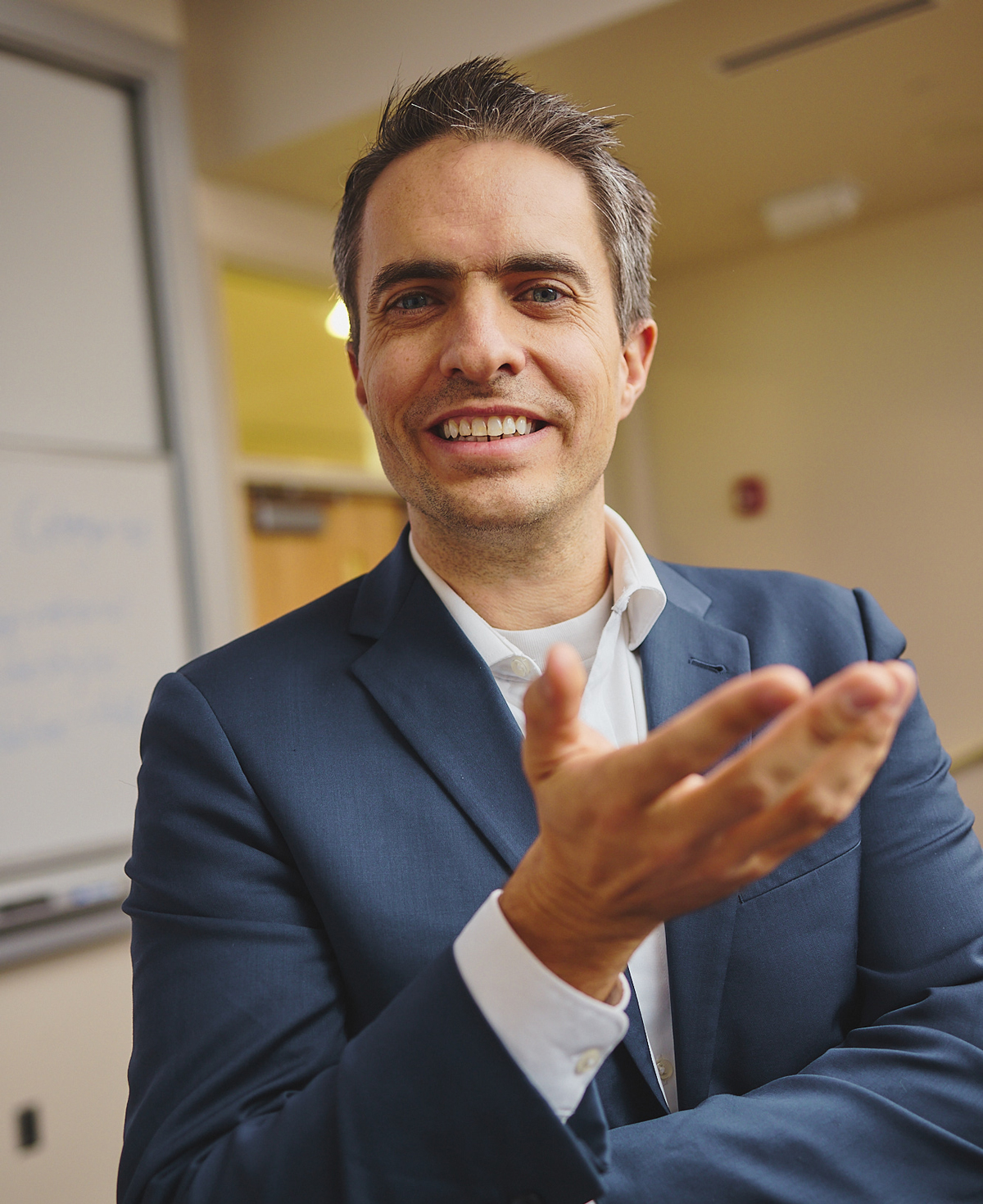
in their communities.
“Penn State taught me how to be a scientist,” he says, helping him develop the analytical and statistical skills of a scholar. This summer, he became an assistant professor of marketing in the Marriott School of Business at Brigham Young University, classified as an R2 research university.
Many other Smeal Ph.D.s have also landed at top research universities. Since 2013, the college has had 145 placements, and 63 percent of those were at R1 or R2 institutions.
That success comes from a relatively small program, capped at 65 students and offering a high faculty-to-student ratio. “Students are treated as future colleagues,” says Dana Campolongo, an education programs associate in Smeal’s Ph.D. program. “The teaching load is not excessive, and all students must attend our Teaching Summit before they are placed in front of a classroom.”
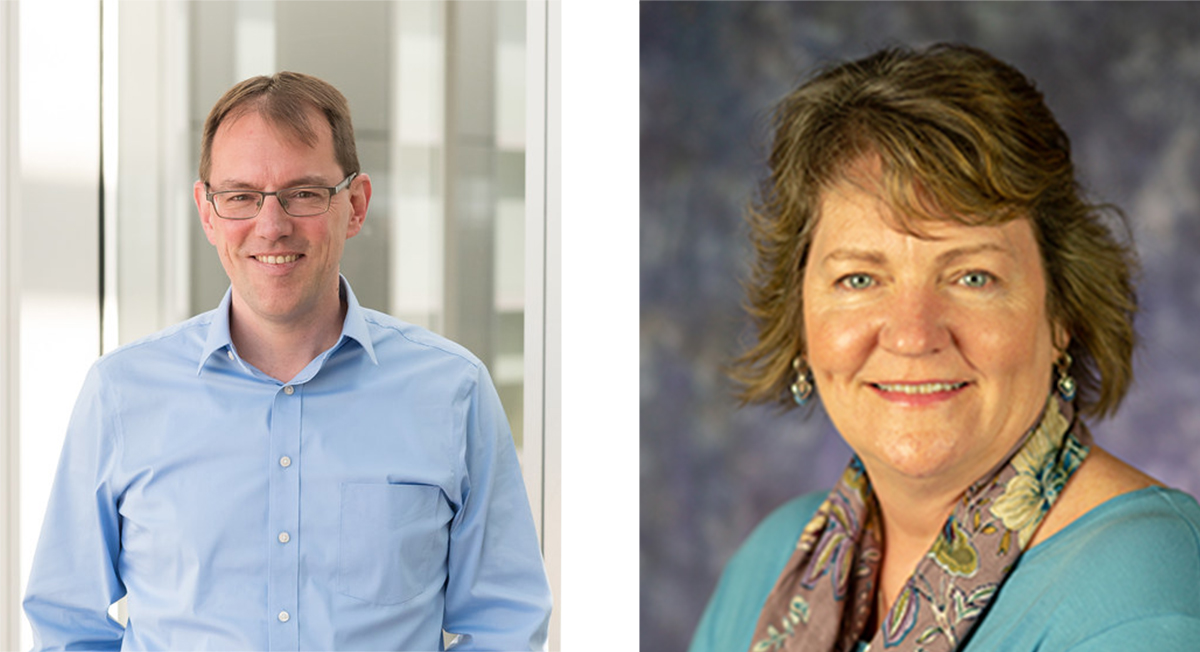
Stefan Wuyts and Dana Campolongo, Smeal Ph.D. program education programs associate
The college also has created a Smeal training session to meet the five-hour Scholarship and Research Integrity (SARI) discussion-based education that is a requirement of the University’s Office of Research Protection. Led by Linda Treviño, Distinguished Professor of Organizational Behavior and Ethics, the training addresses topics related to the responsible conduct of research.
Beck will continue the kind of marketing research at Brigham Young that he started at Penn State and plans to work with Wuyts on future projects.
“Businesses can be a force for good in the communities in which they engage,” he says. “They actually can gain long-term customers who love their mission and want to continue to spend money with that company.”
Unlike most Ph.D. candidates in marketing, Beck entered the program with a decade of work experience. A native of Salt Lake City, he held digital marketing positions at several tech companies there including ContentWatch, Workfront, DigiCert, Lendio, and Kuali.
“Businesses can be a force for good in the communities in which they engage. They can gain long-term customers who love their mission and want to continue to spend money with that company.”
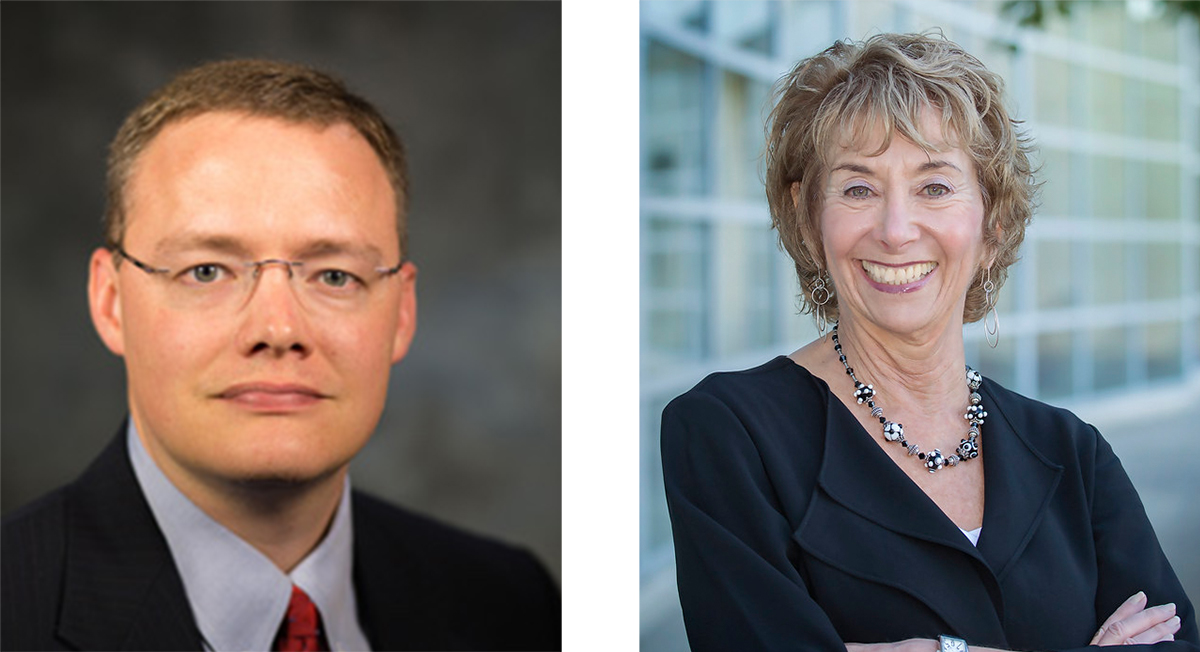
Beck also did consulting work. While he says he believes that the vast majority of marketers are not trying to scam consumers and are just doing their jobs, he would run into practices that seemed shady or misleading. For example, one company he consulted with made customers jump through hoops to get an advertised rebate. Another company deleted the negative reviews on its online platform, only posting the best ones. He believes companies can be more successful in the long run if they engender consumer trust.
Beck’s work experience gave him an advantage in developing good research ideas, says J. Andrew Petersen, associate professor of marketing and Beck’s advisor at Smeal.
“I think Ben was a step ahead of a lot of the other students when it came to understanding the business world and understanding the challenges out there. His ideas were relevant and interesting.”
Beck says Petersen helped him develop statistical coding skills as well as empirical skills such as disentangling potential causes of a phenomenon. Beck worked with Petersen on a project that would protect consumer privacy while still allowing marketers to use aggregate information to help companies target potential customers more effectively. With new regulations related to the collection of browser cookies due to take effect, this model would help companies zero in on prospective customers without violating privacy.
The research, one of his dissertation projects, informed a chapter in a book on the changing landscape of privacy and digital marketing.
“I think Ben was a step ahead of a lot of the other students when it came to understanding the business world and understanding the challenges out there. His ideas were relevant and interesting.”
“Ben was very creative, eager to learn,” says Wuyts, who is also director of the Institute for the Study of Business Markets at Penn State Smeal. “On top of that, he was also very open-minded. He’s a pleasure to work with.”
Beck says Wuyts taught him to “approach research with a theory-first approach and develop research that has a more theoretical contribution.”
Beck also is working with Wuyts on a research project in Cambodia about corporate social responsibility from the bottom up. They are testing the idea that small businesses in Cambodia, such as motorbike repair shops or produce vendors, can engender customer loyalty and grow their businesses by engaging in community service. “These small businesses are often worried about bringing money home to their family. There’s a fair amount of time when there are no customers in their shop. That’s time that they could be doing service in the community and generate more sales.” Beck is also springboarding other research projects with Wuyts.
In addition to the academic skills Beck developed at Smeal, he often found himself in the role of mentor and leader among the other Ph.D. candidates, says Meg Meloy, David H. McKinley Professor of Business Administration, chair of the marketing department, and former Ph.D. coordinator. When he arrived in the program, he was married and had a young family. He had already lived overseas, and he had consulted for dozens of businesses. He brought those business and life experiences to the program.
“He was the go-to guy if any of the marketing Ph.D. students had problems,” Meloy says. “He was constantly trying to involve them in social activities, to build cohesion and remind them of work-life balance. He understood the challenges that everybody was facing. His positive attitude, ready smile, and calm demeanor were a balm when the going got tough.”
Beck says he picked Penn State Smeal because he knew that the professors genuinely cared about the well-being and academic development of its students. He is finding those same values at the Marriott School of Business.
“In general, the feeling between the two business schools is very similar,” he says. “Good people — faculty and staff — caring about the students and doing high-impact research.”
SMEAL BY THE NUMBERS
Here are a few additional examples of the academic and long-term success of Smeal students in 2022-23.
